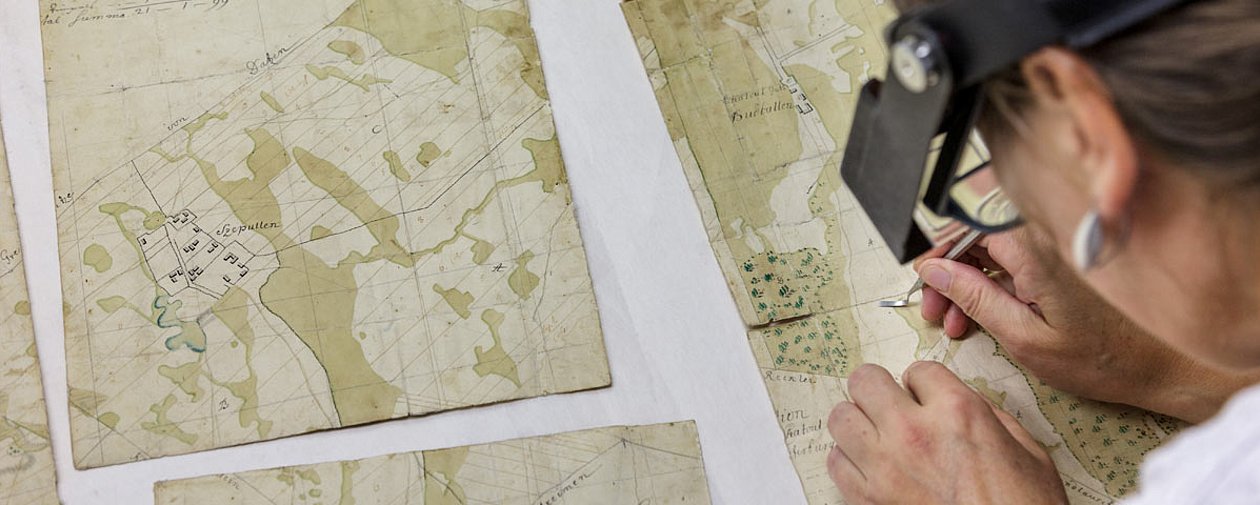Bereichsnavigation
Prussian Secret State Archives
Glimpses of the Geheimes Staatsarchiv Preussischer Kulturbesitz
The GStA PK is “Prussia’s memory.” It preserves and makes available documents on the evolution of Prussian territories from the Lower Rhine to East Prussia, from the Franconian Margravate to the Free State in the twentieth century.
The Geheimes Staatsarchiv Preussischer Kulturbesitz (Prussian Secret State Archives, GStA PK) preserves around 38,000 meters of archival materials. They include deeds, files, record books, maps and other storage media. These holdings illustrate around 800 years of Brandenburg and Prussian history. Moreover, the GStA PK has a library with around 190,000 volumes. In addition to its function as historical archive, it is the central administrative archive for the Stiftung Preussischer Kulturbesitz (Prussian Cultural Heritage Foundation).
The Archives offer extensive research services for scholars and interested lay persons. One of its most important tasks apart from preserving its holdings is making these holdings, archives and collections available. Its long-term goal is to make all of its finding aids available on the Internet. Users can already research around a quarter of the Archive’s holdings via online finding aids. In addition, the Archive is digitizing selected complexes of documents and making them accessible via the Internet. Finally, the GStA PK’s own publications contribute to research on the history of Brandenburg and Prussia.
The origins of the Geheimes Staatsarchiv Preussischer Kulturbesitz date back to the thirteenth century. It is thus the Foundation’s oldest institution. It occupies an important position among German state archives. It is a “state archive without a state” and hence largely a historical archive. The holdings of its collection are in essence complete. It was given the title “Geheimes” (Secret) Staatsarchiv in 1803. That confirmed its position as Prussia’s central archive.


